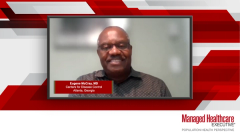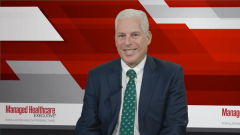Payer Support Driving Optimal HIV Treatment
Dr. Peskin identifies the significance of payer support in the treatment landscape of MDR HIV.
Episodes in this series
Steven Peskin, M.D., MBA, FACP: As far as helping, improving or facilitating, for payers, yes, we’ve got integrated delivery, and financing systems, perhaps the best known being Kaiser Permanente. In general, in a plan like where I was, we do not deliver care. We don’t have any delivery system. That said, we have very astute pharmacists, PharmDs [doctors of pharmacy], physicians and RNs [registered nurses], and there’s oversight. So, if those persons are tending to health management of a population of HIV [human immunodeficiency virus]-infected persons, the health plan can certainly facilitate, promote, encourage, and make phone calls.
If the patient has opted in, and I want to emphasize they do have to opt in for these programs, then their care or case manager can say, “Looking at things and going over your medication regimen or talking with my colleague, the PharmD, we’re seeing something that we wanted you to take up with your physician.” The person might say, “I don’t have a primary HIV-ologist right now. She moved away or he moved away.” Then that can mobilize the health plan to find and facilitate that person getting connected to an expert in the area of management of HIV.
In the situation where—we don’t have much of this in New Jersey—but say in Montana health plans will be able to facilitate some virtual care, telemedicine. We see this being done more and more frequently. It’s a very exciting area. The VA [Department of Veterans Affairs] has been a pioneer in this area, as have commercial health plans and Medicaid plans, to get needed care and expertise in the areas that are underserved.
Targeted programs in HIV, I can certainly say that our program called Neighbors and Health, which we were talking earlier about the use of community health workers and using the connection to the resources that a person may not readily have. Again, whether it be transportation, health literacy, access to subspecialty care, or getting the medications, securing the medications, if the person maybe is in an unsafe neighborhood and is concerned about getting to the local pharmacy, or they don’t have access to mail service home delivery. This program in particular addressing social determinants or social drivers absolutely has had import in HIV and other chronic conditions. Thinking even more broadly, the interconnection or activities of case managers, whether they be from the health system side or the health plan side, most certainly have a positive impact.
The last thing I’ll mention, not forgetting about my colleagues in pharmacy services, the application of their expertise around medication therapy management, therapy optimization, giving feedback to physicians who, try as they might, may be not familiar with certain subtleties about one medication over another in a certain circumstance. That constructive feedback is well received. Not always, but generally speaking.
Transcript edited for clarity.
Newsletter
Get the latest industry news, event updates, and more from Managed healthcare Executive.


























